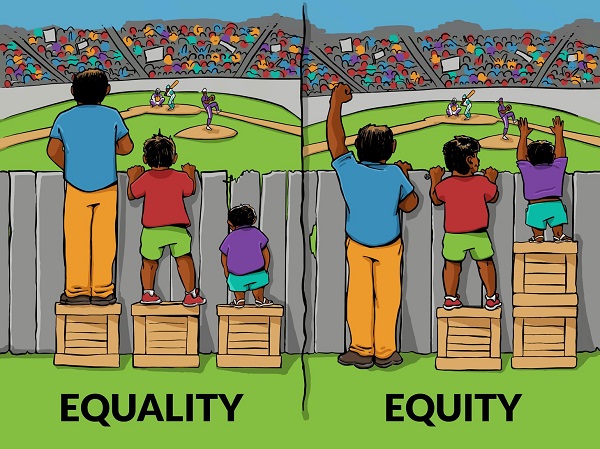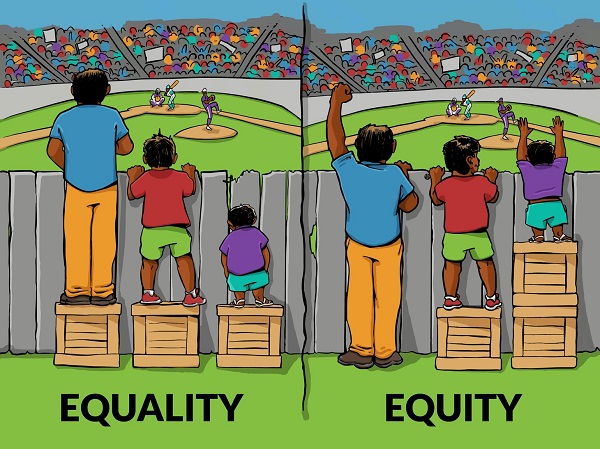
We are learning much about health equity as it is being brought to the forefront during the COVID-19 crisis. According to an NPR data analysis using the COVID Racial Tracker, “Nationally, African-American deaths from COVID-19 are nearly two times greater than would be expected based on their share of the population.” In addition, “In 42 states plus Washington D.C., Hispanics/Latinos make up a greater share of confirmed cases than their share of the population. In eight states, it's more than four times greater.” In Mendocino County, Latinos make up 60% of COVID cases, but about 25% of the county-wide population.
The article Using Social Determinants to Promote Health Equity During a Crisis published in May by Health IT Analytics states that the COVID-19 pandemic has exacerbated existing health equity challenges, leading organizations to leverage social determinants data to get ahead of poor outcomes.
Social determinants of health are conditions in the environments in which we are born, live, learn, work, play, and worship that affect a wide range of health, functioning, and quality-of-life outcomes and risks. These economic, social, cultural, and environmental factors affect a wide range of health risk and outcomes and impact the health status of individuals and groups.
In Mendocino County, as in most communities, there are large health disparities among populations and geographic areas. These disparities generally stem from root causes and inequities such as the toxic effects of poverty, lack of safety, and inadequate housing that can also lead to poor school performance, high Adverse Childhood Experiences (ACEs) and other concerns. Such root causes cannot be addressed by individuals or even by individual systems or organizations. Health inequities can only be addressed by moving “upstream” from a focus on individual responsibility to a focus on our collective responsibility to create the conditions that enable all residents to make healthy choices and have better health outcomes.
The four main populations that have been identified in Mendocino County as disproportionally impacted are low income families, outlying communities, Native American communities and Latinx communities. Specific goals should be set for addressing outlying communities and low-income families where possible, based on our partnerships and community conversations.
In communities of color, health inequities exist as a result of disenfranchisement, institutionalized racism and, for Native American Tribal nations, historical genocide and its legacies. Any needs identified or solutions created must be done within these communities and not by outside agencies or organizations. Goals should be to develop relationships with each of the Tribal Nations and the leaders of the Latinx communities throughout the county so that we can work with them to change practices and policies that continue to produce the inequities seen in our data.
For low-income people and people of color, the same root causes behind inequities in outcomes for COVID-19 — structural racism, segregation, and historic and ongoing community disinvestment — are also the drivers behind inequities in other social outcomes, like education, employment, and policing.
What lessons can we learn at this time and what solutions can we promote to bring about greater equity to our underserved and vulnerable populations?
The Urban Institute has made available numerous research articles related to what they call “Structural Racism in America”:
Urban Institute: Structural Racism in America
Throughout this country’s history, the hallmarks of American democracy – opportunity, freedom, and prosperity – have been largely reserved for white people through the intentional exclusion and oppression of people of color. The deep racial and ethnic inequities that exist today are a direct result of structural racism: the historical and contemporary policies, practices, and norms that create and maintain white supremacy.
At the Urban Institute, we examine how structural racism continues to disproportionately segregate communities of color from access to opportunity and upward mobility by making it more difficult for people of color to secure quality education, jobs, housing, healthcare, and equal treatment in the criminal justice system.
For decades, our researchers have called attention to the role of race and racism in our public and private institutions and offered evidence-based solutions for how to address these inequities. Our scholars will play a crucial role as we continue to elevate the public discourse around race and racism in America.
Below is a list of articles about COVID-19, racial inequity, health and income disparities
COVID-19 Racial Health Disparities Highlight Why We Need to Address Structural Racism
How COVID-19 Is Affecting Black and Latino Families’ Employment and Financial Well-Being
How We Should Talk about Racial Disparities
https://www.urban.org/urban-wire/how-we-should-talk-about-racial-disparities
Four Ways Research Can Drive Racial Equity in Education in 2020 and Beyond
How Social Scientists Can Incorporate a “Latinx Lens” in Their Work
https://www.urban.org/urban-wire/how-social-scientists-can-incorporate-latinx-lens-their-work
What Would it Take to Reduce Inequities in Healthy Life Expectancy?
Latinx Unemployment Is Highest of All Racial and Ethnic Groups for the First Time on Record
Addressing dating violence for young girls of color in the #MeToo era
https://www.urban.org/urban-wire/addressing-dating-violence-young-girls-color-metoo-era
Visibility for women of color is the crucial first step toward equality
https://www.urban.org/urban-wire/visibility-women-color-crucial-first-step-toward-equality
Latinx immigrant crime victims fear seeking help
https://www.urban.org/urban-wire/latinx-immigrant-crime-victims-fear-seeking-help
Mortgage lending in Indian Country has jumped, but land policies remain a barrier
Many older Hispanics face steep financial hurdles
https://www.urban.org/urban-wire/many-older-hispanics-face-steep-financial-hurdles
Why the low Hispanic homeownership rate matters
https://www.urban.org/urban-wire/why-low-hispanic-homeownership-rate-matters
Latinos and African Americans: Shared experiences, shared solutions
https://www.urban.org/urban-wire/latinos-and-african-americans-shared-experiences-shared-solutions
One solution to racial wealth inequities
https://www.urban.org/urban-wire/one-solution-racial-wealth-inequities

